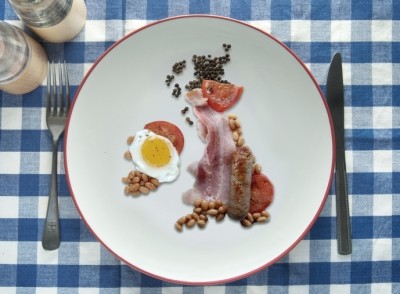Food sector breathes relief as Brexit talks to move to stage two

UK Prime Minister Theresa May and European Commission President Jean-Claude Juncker outlined where common ground has been found in talks over the UK’s exit from the European Union following all-night negotiations in Brussels.
In a joint press conference this morning, the leaders revealed that agreement has been reached on three key sticking points: the Irish border, citizens rights and the financial settlement. There will be “no hard border” between Northern Ireland and the Republic of Ireland – but the “constitutional and economic integrity” of the UK will also be retained. EU citizens in the UK and UK citizens in Europe will have their right to stay, work and study protected. No figure was given on the financial settlement.
The agreement will now be passed to the European Council and member states for ratification ahead of next week’s EU summit. “The decision is now in the hands of the 27 heads of state and government,” Juncker said during the press conference. “I am sure they will share our appraisal.”
The worst still to come?
The agreement – which looked on extremely thin ice this week as the UK Prime Minister struggled to secure the necessary backing to push it through Parliament – will now move on to talks over the two-year transition period and the future trading relationship between the UK and EU.
European Council President Donald Tusk warned that this process is also likely to be challenging.
“The most difficult challenge lies ahead,” the EC President warned. “We are ready to discuss a two-year transition period but we have our conditions."
Tusk insisted that the UK would have to respect the whole of EU law, including any new laws, the EU budget, judicial oversight and any related obligations during the period. “And decision-making will continue between the EU27 without the UK,” he added.
Food sector 'welcomes' progress, urges speed
Signs of relief were evident from the UK food sector, which has staunchly insisted that it needs free-trade with the EU, an open border in Ireland and access to European migrant workers to function effectively.
“We look forward to seeing the detail of what has been agreed on citizens’ rights and on the border between Northern Ireland and the Republic of Ireland; both issues of critical concern to food and drink manufacturing,” Food and Drink Federation director general Ian Wright said.
However, Wright stressed, further progress is needed – and quickly – if future trading terms are to be agreed ahead of the March 2019 deadline for the UK to leave the European Union.
“Time remains desperately short. We call for swift progress not only on future trade relations between the UK and EU but most importantly on the detail of a transition period. This must maintain the status quo so businesses have the certainty they need,” he urged.
The need for consistency during any transition period was also flagged by the British Retail Consortium which said the agreement to move to phase two was a “welcome step forward”.
“Now we need to get the best deal for UK consumers: tariff-free trade with the EU and simple customs arrangements, plus time for retailers to adapt,” the BRC said.
Dairy UK, meanwhile, said the agreement on the rights of EU and UK citizens and a framework for ensuring there will be no hard border between Northern Ireland and the Republic of Ireland were “vitally important steps in the right direction”.
“What we need now is greater detail and clarity on our future relationship with the EU in the transition period and beyond, so that the dairy industry has both certainty and stability in which to do business,” Dr Judith Bryans, chief executive of Dairy UK said.
European industry body FoodDrinkEurope has also thrown its weight behind a transition period that preserves existing trading relations.
“We urge negotiators to agree on transitional arrangements that will apply until an EU-UK trade agreement is in place, to protect the sector’s successes and long-term investment and the jobs that we support. We both strongly support a ‘status quo’ transition period which allows existing trade and customs arrangements to continue largely unchanged until a new trade agreement enters into force. This will help minimise the uncertainty and cost for business and our consumers,” FoodDrinkEurope said in a joint statement with the FDF earlier this week.

















